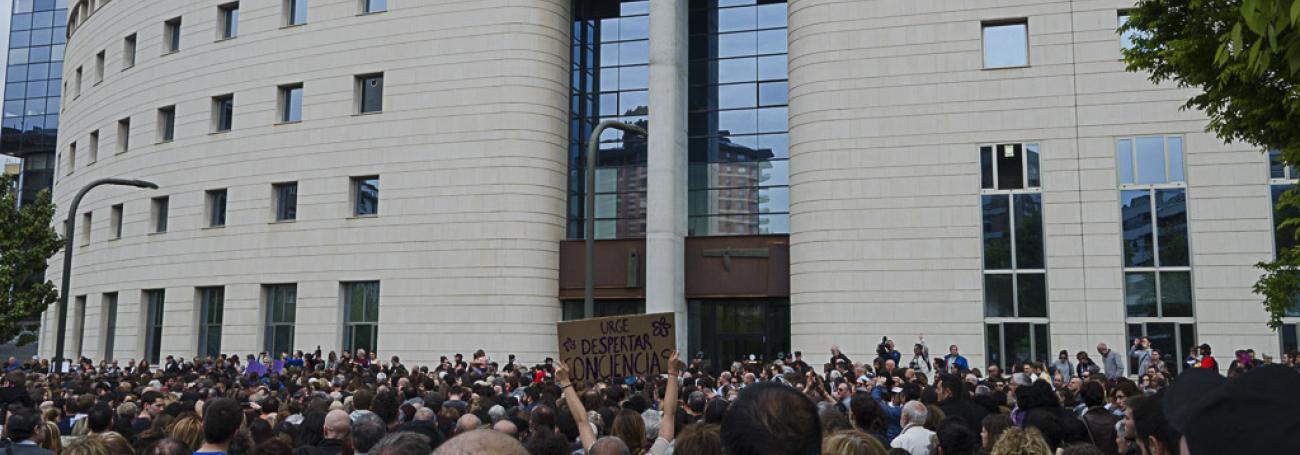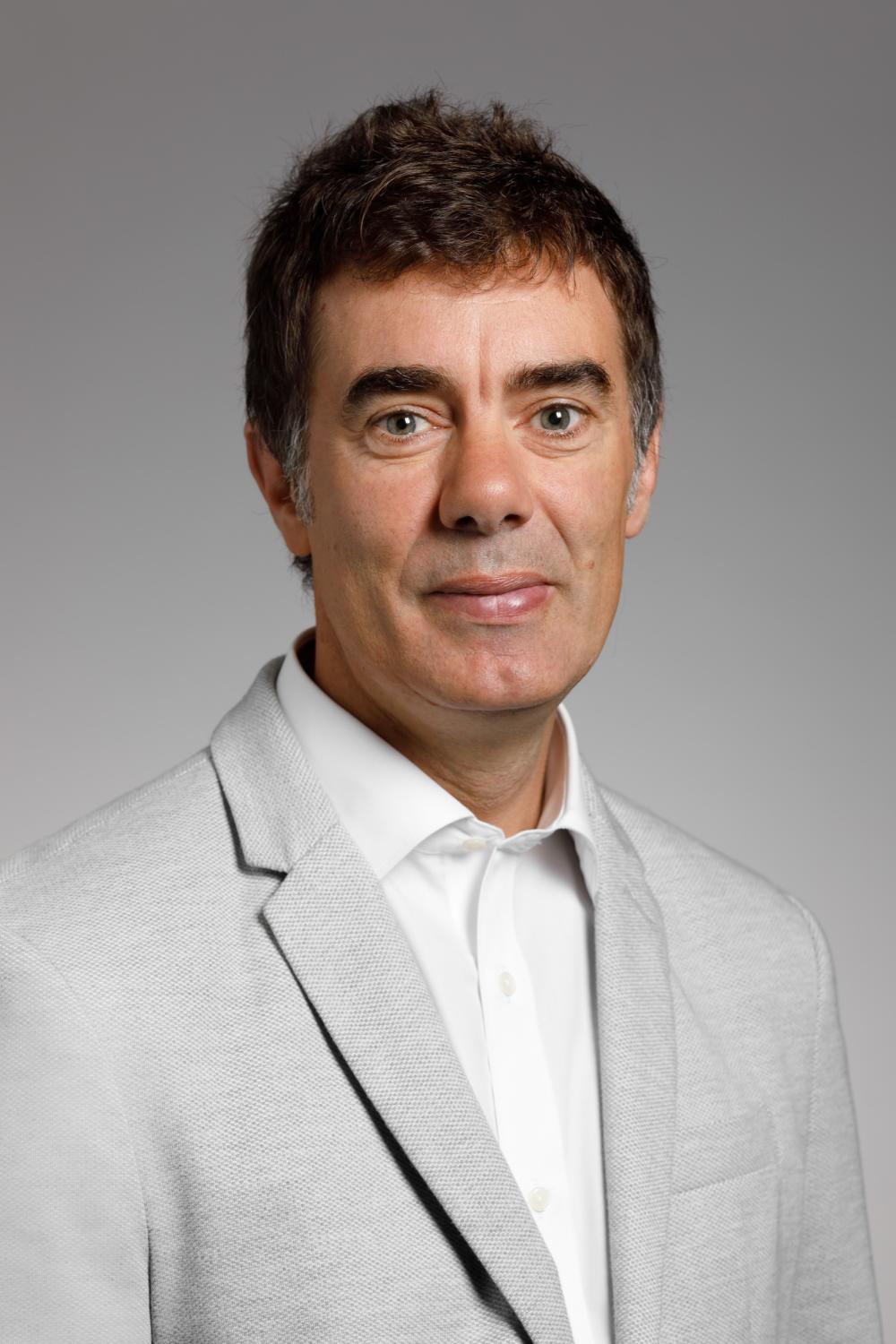
Lee este artículo en español / (Read this article in Spanish) »

Navarra has been one of the most fruitful regions in Spain (and Europe) in terms of restorative justice developments during the past twenty years. Now, with the approval of the new Ley Foral of restorative justice, mediation, and community restorative practices, and the celebration of the upcoming 12th International EFRJ Seminar in Pamplona, Navarra is again on the cutting edge. This new law stands as a pioneering element at the Spanish policy level, being the only specific restorative justice legislation in the country, while the celebration of the Seminar contributes to situating Pamplona and Navarra at the centre of this year’s main European restorative justice event.
This blog piece is part of a series of interviews done with three professionals working at different levels of the restorative justice field to delve a bit more into how the context has changed recently in Navarra, as well as what they expect from the upcoming EFRJ event in Pamplona. You can find the link to the other interviews here.
Eduardo Santos has been Minister of Justice of the Government of Navarra since 2019. With a background as a criminal lawyer, he has vast experience of restorative justice, being a member of the Navarra Association of Mediation (ANAME) since its inception and of several working groups and commissions on restorative justice and criminal mediation in Navarra and Euskadi. As a curiosity, he conducted the first victim-offender mediation encounter in Navarra in 2006.
Eduardo Santos was interviewed by Renata Soares Ramos Falcão (Communication Intern European Forum for Restorative Justice) and Pablo Romero Seseña (Policy Intern European Forum for Restorative Justice).

How did you begin in the restorative justice field? What caught your attention to make you dedicate yourself to it?
I come from the ‘lawyer’s world,’ especially from the criminal and penitentiary jurisdictions. And I used to work with a group of people who all had concerns in this regard, and, well, someone who was working on family mediation appeared. I’m talking about 2002 or 2003. So we noticed, independently and without knowing anything of restorative justice, that we could try to transfer these mechanisms from family mediation to the criminal sphere. It was something spontaneous and without much contact with anyone at international level, and it caught our attention because we, as part of the justice system, were not giving satisfactory answers to either victims or perpetrators in these areas.
At that moment, we proposed the creation of a series of Reflection Groups that were very useful for generating the first protocols in Spain for criminal mediation. In this sense, the collaboration with the Autonomous Community Courts of Justice as well as with public administration in the justice field was essential. Soon the association that handles the cases (Asociación Navarra de Mediación; ANAME) was created. In fact, by the way, I personally did the first criminal mediation in Navarra. It was a slow process of generating documents, protocols, structures, etc.
When the Basque government considered creating a stable service for restorative justice, we also started to work in Gipuzkoa. At that point, I believe I moved a bit from activism to practice and management of this type of resource, where the collaboration between the different administrations, us and the judicial authorities was vital. This experience continued for many years; I also participated in the processes of restorative encounters with victims and perpetrators of ETA in the years 2009 and 2010, which was a very relevant experience.
In 2014, I entered a more political stage, first as spokesperson for justice in a political group in the Navarra Parliament, where we prompted some initiatives related to restorative justice, but it did not go ahead due to difficulties in establishing a common ground because of political instability.
Since I became the Justice Minister in 2019, we began to work on this issue in a more stable way. We did not have a state framework for the regulation of restorative justice and so we thought it was necessary first to generate a theoretical framework for the establishment of the new law; the idea was to generate the restorative justice structure that I was talking about before. In this sense, the creation of the Criminal Execution and restorative justice service was an important step since, through this, an independent and specific restorative justice service was created which extends a common framework to the entire territory of the region. With this structure established, it was possible to begin to review, create and update the different protocols that are necessary for restorative justice in collaboration with the judiciary. Once this was done, that was when we considered it relevant finally to legislate and create the new law. Navarra, as an autonomous community, does not have powers in criminal proceedings policies, but with this law we could establish some foundations and requirements to guarantee access to restorative justice in Navarra and that it would be a quality service and based on minimum training standards.
Thus, I would say that what the law intends is mainly to ensure the quality and training of the services and professionals who work in these services, as well as being able to extend the restorative philosophy to community practices that allow the active participation of citizens in conflict resolution. For all this, there are elements to take into account such as the creation of a Register of Mediators, a Quality Seal of the Government of Navarra, or different strategies and measures of standardisation for the evaluation and for the training of professionals.
The creation of a specific restorative justice subgroup is also proposed within the framework of the Navarra Justice Council, which is a consultative body of the Government of Navarra.
What are the main expected outcomes that can happen through this new Law in Navarra?
I believe we can expect a change of mentality. Until now, we have always thought that conflicts should be solved by a third party, usually a judicial authority. And with this new law I believe that we can start to introduce a new concept, so that the people themselves can be the ones capable of solving their conflicts in a much more autonomous way. This can allow people to participate in an active way in the creation of justice, honouring what the [Spanish] Constitution says that ‘Justice emanates from the people.’ The idea is to democratise the methods of conflict resolution. We are aware that this is complicated and we don’t expect a radical change in the short term; this is a law with an eye on the future, which little by little can allow us to generate a change of mentality in society in order to advance in this direction. This law is a first step; it is the start of walking in this direction, which we believe is the right one. But we are aware that this path is not free from obstacles, and we need to see the context so that we keep moving forward.
What can be the consequences of the law at regional level as well as national and international?
Well, first of all, we hope that it can have a positive impact from the agreement to introduce an amendment that can modify the criminal procedure law to introduce restorative justice from a procedural point of view.
We have also seen interest from other regions and communities in the law, and in fact we are sharing our work with some of them because we do see that there is a clear willingness to be able to work in this way. I believe that our contribution here is that we have opened the way for other regions to recognise that within communities there is room to regulate and legislate in matters of justice and restorative justice. This is most interesting, because, in this, Navarra has been a pioneer.
It is also true that regulations must be adapted to each region or territory and from there assess what and how things can be improved. For example, in the case of the recent law in Schleswig-Holstein, restorative justice has been regulated, but as part of what we understand by probation. Therefore, this means that it is only applicable to criminal justice cases. We wanted to go further, because we believe that in Navarra there is space and interest in setting a wider boundary for this work; what I want to say is that each region or country must assess according to its legal framework, context and situation which are the aspects in which a regulation of restorative practices can be most useful.
Regarding the upcoming EFRJ Seminar in Pamplona, why do you think holding this event in Navarra could be interesting/useful for you?
For us, the European sphere is very important. It has been our frame of reference and our guide. Without the work and collaboration of organisations such as the Forum, we would not have reached where we have. It is a fundamental reference, and for us it is an honour that the EFRJ is coming to our homeland. We proposed Pamplona because the government of Navarra is a government that has opted for restorative justice.
For us, the presence of the EFRJ here is an honour because it is recognition of the work we have been doing here in Navarra — perhaps not so much to publicise our work, but to work together and advance the field of restorative justice in Europe. We can contribute with our experience in policy making, but I think the most interesting thing about this event is that we can all work together, both with the Forum and with the participants who attend.
Finally, what message would you like to share with the EFRJ network as an invitation to this event?
I would say that Navarra is a receptive place, where everyone is absolutely welcome; it is a wonderful place to live and visit, as much for its people as for its gastronomy, its landscape, its culture and its languages. It is an immersion in a very ancient world, if you want to enjoy it. We as a government are delighted to welcome all the people who are coming to the seminar; we are sure that it will be a very rewarding and enriching experience for everyone.
Eduardo Santos was interviewed by Renata Soares Ramos Falcão (Communication Intern at the European Forum for Restorative Justice) and Pablo Romero Seseña (Policy Intern at the European Forum for Restorative Justice).
Published on 6 June 2023.